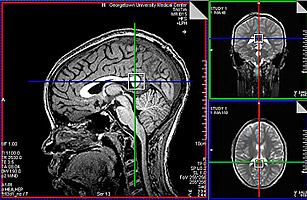
It's hard to make the concussion statistics any scarier than they are. With hundreds of thousands of sports-related concussions each year occurring in the U.S. and perhaps only 1 in 10 kids who get hurt reporting the injury, there's no telling exactly what the scope of the damage is. We don't expect children to be the best guardians of their own health, but we expect parents and coaches to watch out for them. And yet it's those very adults who sometimes drop the ball when it comes to preventing and treating concussions. So how can we protect and preserve the precious and sensitive brain function of the kids in our care?
The first thing we need to do is become smarter. Many coaches, parents and kids are still not aware of the risk of concussion in youth sports, though that's slowly changing. Understanding the danger also means learning to recognize symptoms. The Centers for Disease Control and Prevention (CDC) is trying to raise awareness through a comprehensive education program called Heads Up: Concussion in Youth Sports. Available on the CDC website, the program has been adopted by many experts in youth sports and includes critical information about not just spotting concussions when they occur but preventing them in the first place.
If I'm treating you and I suspect you have a concussion, the first question I'd ask is, "Do you remember the injury?" If you answer no or are confused or move clumsily, you most likely have a concussion and need to avoid for at least two weeks any activity that could lead to further injury. That may seem hard to do, but what you get in return is a lifetime of memory and intact neurologic function.
Of course, what I know as a physician isn't always the same as what I feel as a parent — and that's something all parents may experience. When my 16-year-old daughter Zoe banged her head into another girl while playing basketball, I wanted her to get back into the game even though she looked a bit awkward after the collision. Her coach had more sense and sat her down. When a parent pressures a child to get back in the saddle too soon, it can have catastrophic consequences, and the same can be true of pressure from a coach with a championship game on the line and a star player who's taken a hit and is looking wobbly. In these situations, concern must precede encouragement, and zeal has no place in the parent's or coach's tool kit.
Head injuries don't happen only on the basketball court or the playing field. Everyone — adults and kids alike — should wear helmets when they're skiing, snowboarding, skateboarding or bicycling. The home can be a minefield as well, but there are some simple precautions we can all take. Fall-proof your home to prevent slips by making sure living space is uncluttered, rugs and carpets don't slide, and spills are cleaned up immediately. Be careful on the road too. Always wear your seat belt, since automobile accidents are one of the more common causes of concussions — as any physician who has worked a shift in the ER could tell you.
There are unexpected new ways to speed recovery from a concussion. A little-known New Zealand study from 2006 showed that tai chi improved the overall mood in patients with traumatic brain injury in a number of ways, including decreasing sadness (12%), confusion (12%), anger (8%), tension (15%) and fear (10%) and increasing energy (14%) and happiness (7%).
The DHA omega-3 fatty acid, a building block of brain tissue, is showing promise in preventing and treating the effects of concussions. In fact, some college athletic associations, like the University of Georgia's, have already introduced the use of algal DHA as part of their postconcussion protocol for all athletes. Unfortunately, while optimal levels of DHA consumption are 100 to 160 mg per day, the average among kids in the U.S. is just 30 to 50 mg. Adults are not doing much better.
Parents should ensure that their children reach their daily DHA goal, either through diet — fish is the main source — or supplements. We are the watchdogs of our kids' minds and health for just 18 years before we send them out into the world. We owe it to them to give them the best possible chance to be happy and thrive there.
Mehmet Oz is vice chairman and professor of surgery at Columbia University, a best-selling author and the host of the nationally syndicated television talk show The Dr. Oz Show